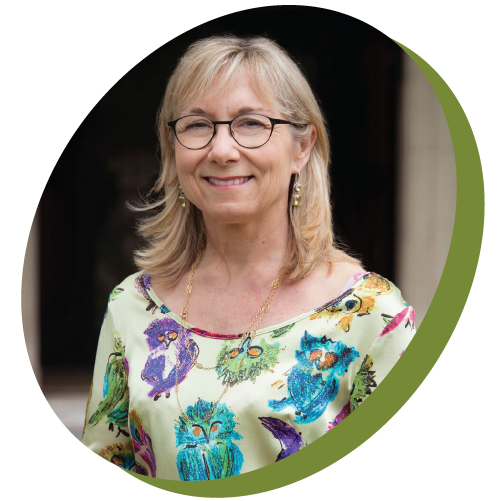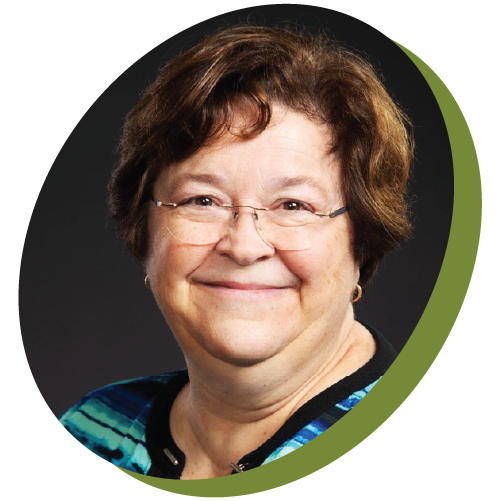The second annual Franco-Ontarian Forum organized by eCampusOntario will take place February 6th, 2025 at The Quay in Toronto.
Last year, eCampusOntario began building a community of practice to improve and expand virtual learning materials and programs in French and French as a second language in Ontario. Today, our community has over 300 members, including educators and students from across the province who want to develop their professional digital practices. Building on the success of last year’s Forum, we continue to develop professional development opportunities and support engagement to strengthen ties within the Franco-Ontarian community.
In February, our conference, « La révolution IA : s’adapter et l’adopter avec éthique et responsabilité pour transcender l’apprentissage en français en contexte minoritaire », will explore how the post-secondary education sector can optimize the effective integration and use of AI and emerging technologies in practices and institutions for programs in French and of French as a Second Language.
Pre-Conference Webinars
The Franco-Ontarian Forum will offer a series of webinars prior to the in-person event
In-person and Virtual Conference
February 6, 2025
In-person conference – February 6, 2025 9AM-5PM followed by a networking session at “The Quay” in Toronto.
Date:
Thursday, February 6, 2025
Location:
The Quay, Toronto
« La révolution IA » will include hands-on workshops offering
numerous opportunities for networking and collaboration with
colleagues from across Ontario.
Limited tickets for in-person attendance are available.
In-person conference includes:

Panel discussion
A debate on strategies for retaining Francophone students in programs aligned with their career aspirations using AI.

Interactive workshops
and hands-on sessions
Multiple workshops and sessions
available to actively engage in your learning and to provide you first-hand experience with digital tools to bring into your classroom.

Networking Reception
A reception after the event will
provide an opportunity to
reconnect with colleagues and
make new connections!
Keynote Speakers

Dominique
Scheffel-Dunand, PhD,
Associate Professor,
York University
Révolution ou Disruption ? Le rôle de l’IA
générative dans le mouvement de l’Éducation
ouverte
In the ever-evolving world of information probing and knowledge creation, one can ponder how the convergence of Generative AI and Open Education could further transform professional development and learning, dismantling traditional barriers to knowledge access. Generative AI is subversive, but so were spaces investigating “openness” and “accessibility” twenty-five years ago. They were compared to a babbling bazaar with differing agendas and inquiries, out of which a coherent system has emerged today. Over time, these open models have evolved into structured, institutionalized frameworks driving collaboration and creativity across the Cathedral and Bazaar educational ecosystems.
The bazaar approach—decentralized and community-driven—has grown rapidly, contrasting with the slower, top-down “cathedral” models. Today, Generative AI adds new dimensions to this dynamic and invites us to explore how it could offer innovative ways to co-create, customize, and share culturally localized educational resources.
By 2020, I began mobilizing around processes that could support the creation of OER for French language education across K-12 and higher education. Recent funding gave me the opportunity to initiate a cross-institutional project modeled on the bazaar style, allowing educators and learners to co-create and adapt OER using Generative AI to better support student success. This keynote tells the story of that project studying the potential of Generative AI to transform our educational ecosystems.
About Dominique Scheffel-Dunand, PhD
A linguist by training and Associate professor in the department of French Studies at York University, Dominique Scheffel-Dunand’s research focuses on the concepts of conversation and speech analysis, language acquisition, intercultural and plurilingual competencies in language and culture contact. She is the Graduate Program Director of Francophone Studies, Academic Lead of the Globally Network Learning initiative at York University and Co-lead of the Recruitment, Training and Research Project for FSL teaching in Ontario at Glendon College (The FSL Hub Camerise). In these various spaces she is fostering research initiatives and developing teaching and learning environments that support Open Education and the production of OER to be shared across researchers, instructors and learners through international networks and community-driven learning spaces.
For more information, visit:
https://www.linkedin.com/in/dominique-scheffel-dunand/,
https://yorkinternational.yorku.ca/gnl/, and follow @camerisefslhub

Martine Peters, PhD
Director of PUPP,
University Partnership on
Plagiarism Prevention,
Full Professor
Pourquoi se servir de ChatGPT quand on peut apprendre? Une trousse pédagogique préventive pour les futé·e·s!
This conference is aimed at teachers who want to prevent plagiarism and encourage authentic learning in the age of artificial intelligence.
We will explore:
1) a new definition of plagiarism,
2) how to put forward one’s own position on the use of artificial intelligence in one’s lesson plan,
3) how to prevent plagiarism with various activities that foster critical thinking and creativity in students.
Finally, we’ll talk about the importance of transparency when using AI. Come and join us for a time of exchange and learning that will enable you to become “smart” about the challenges of artificial intelligence!
About Martine Peters, PhD
Martine Peters is a full professor in the Department of Education at the Université du Québec en Outaouais. Her areas of specialization are French didactics, academic literacy and pedagogy. Her research focuses on academic integrity, plagiarism prevention, the ethical use of artificial intelligence and digital authoring strategies used in academic writing at all levels of education. She is director of the University Partnership on Plagiarism Prevention (UPPP), a Social Sciences and Humanities Research Council of Canada (SSHRC)-funded project that brings together 62 researchers from ten countries, actively seeking ways to foster academic integrity
among university students.
For more information, visit:
https://mpeters.uqo.ca/en/bienvenue-sur-le-site-web-de-martine-peters-english/
Sponsored by


The Forum « La Révolution IA » is made possible with funding by the Ministry of Colleges and Universities.
